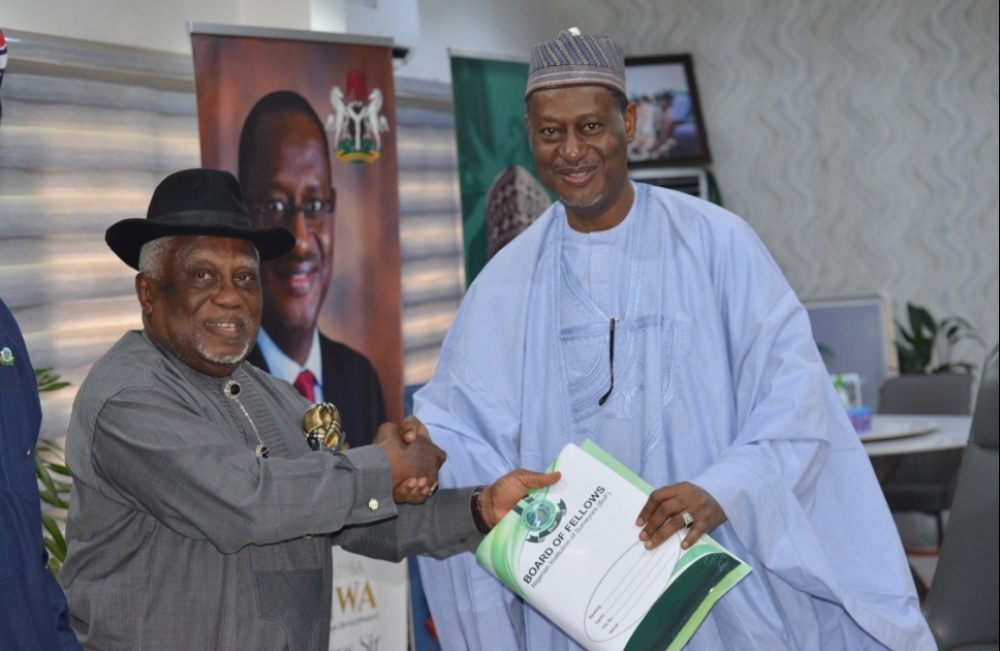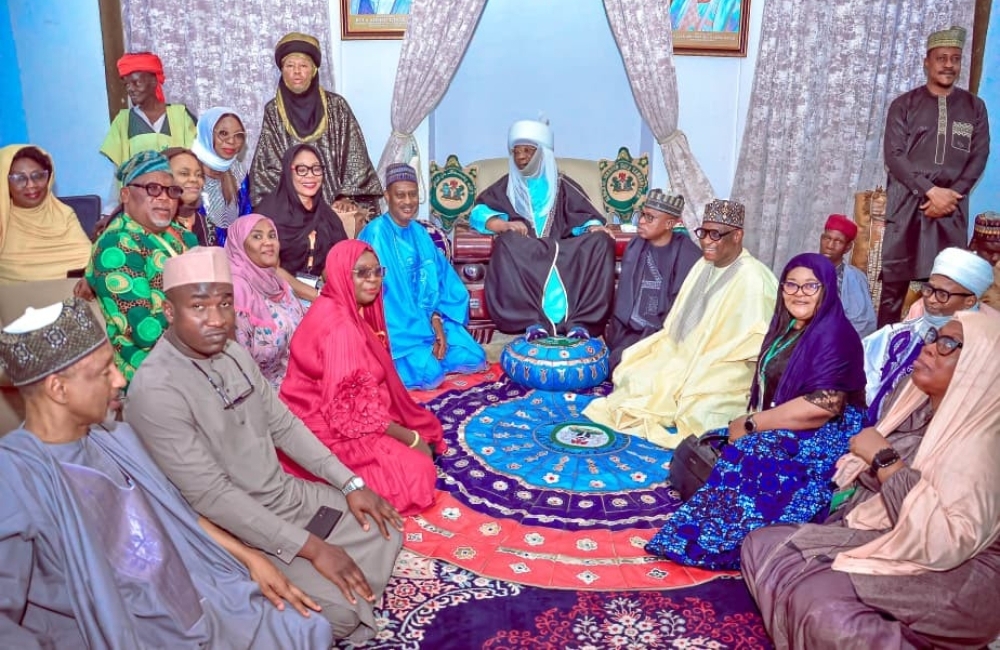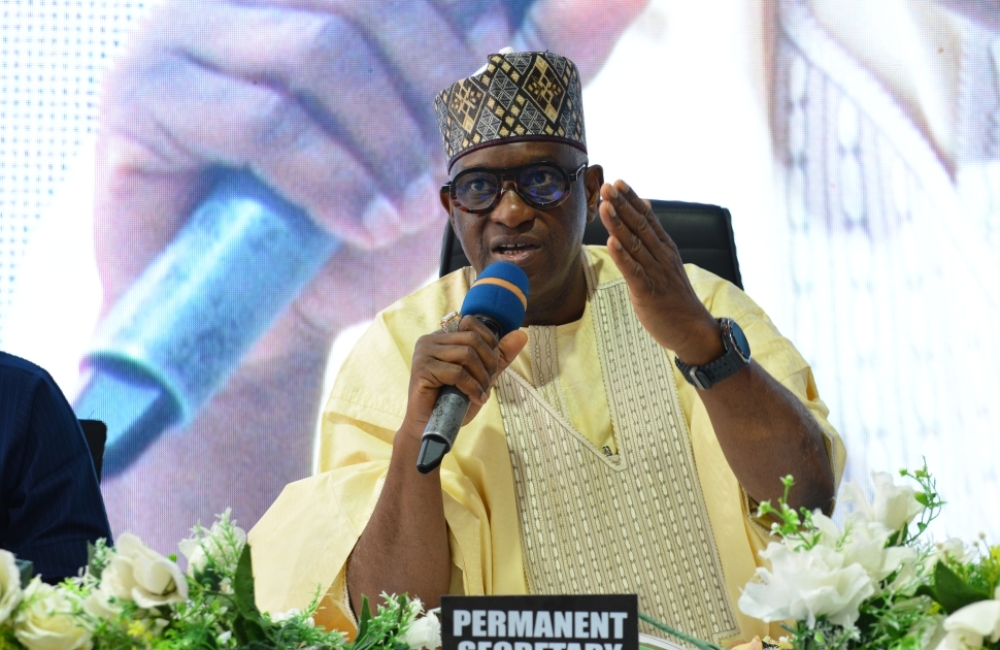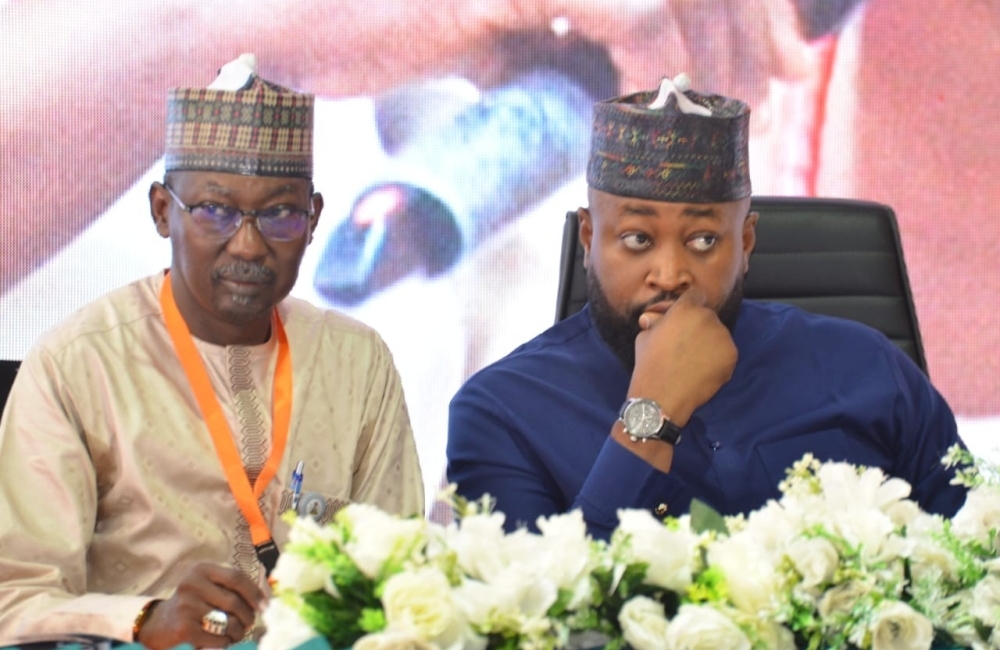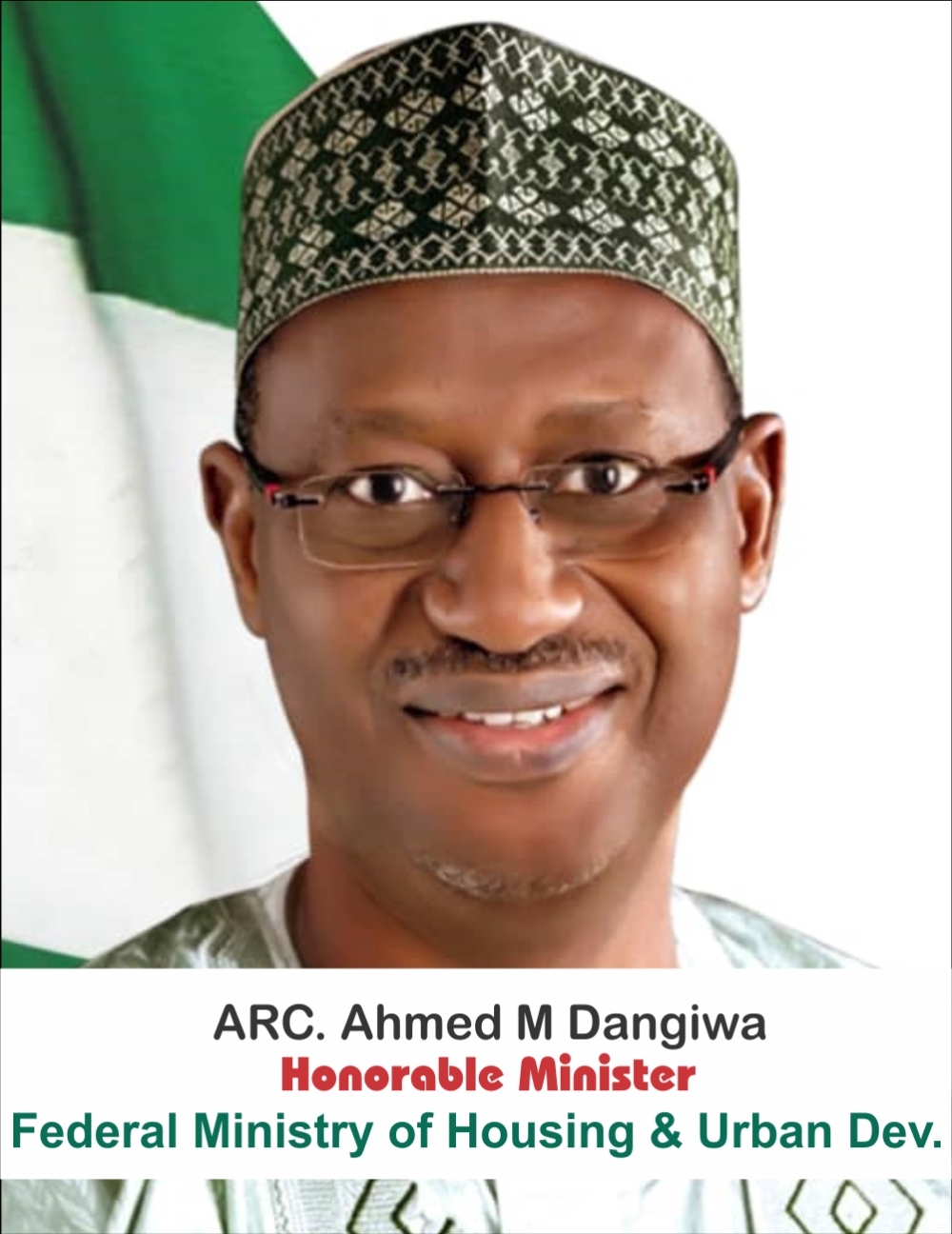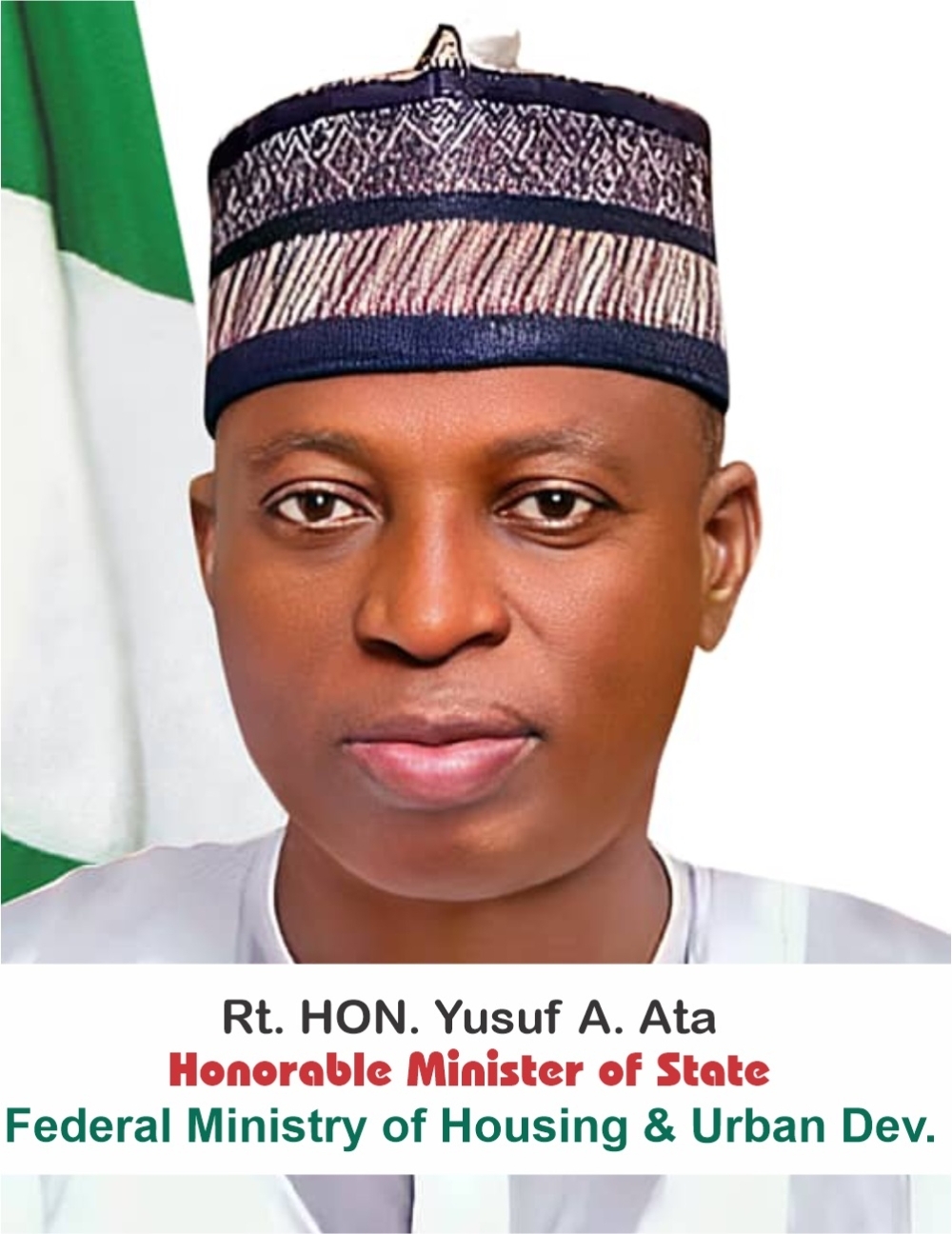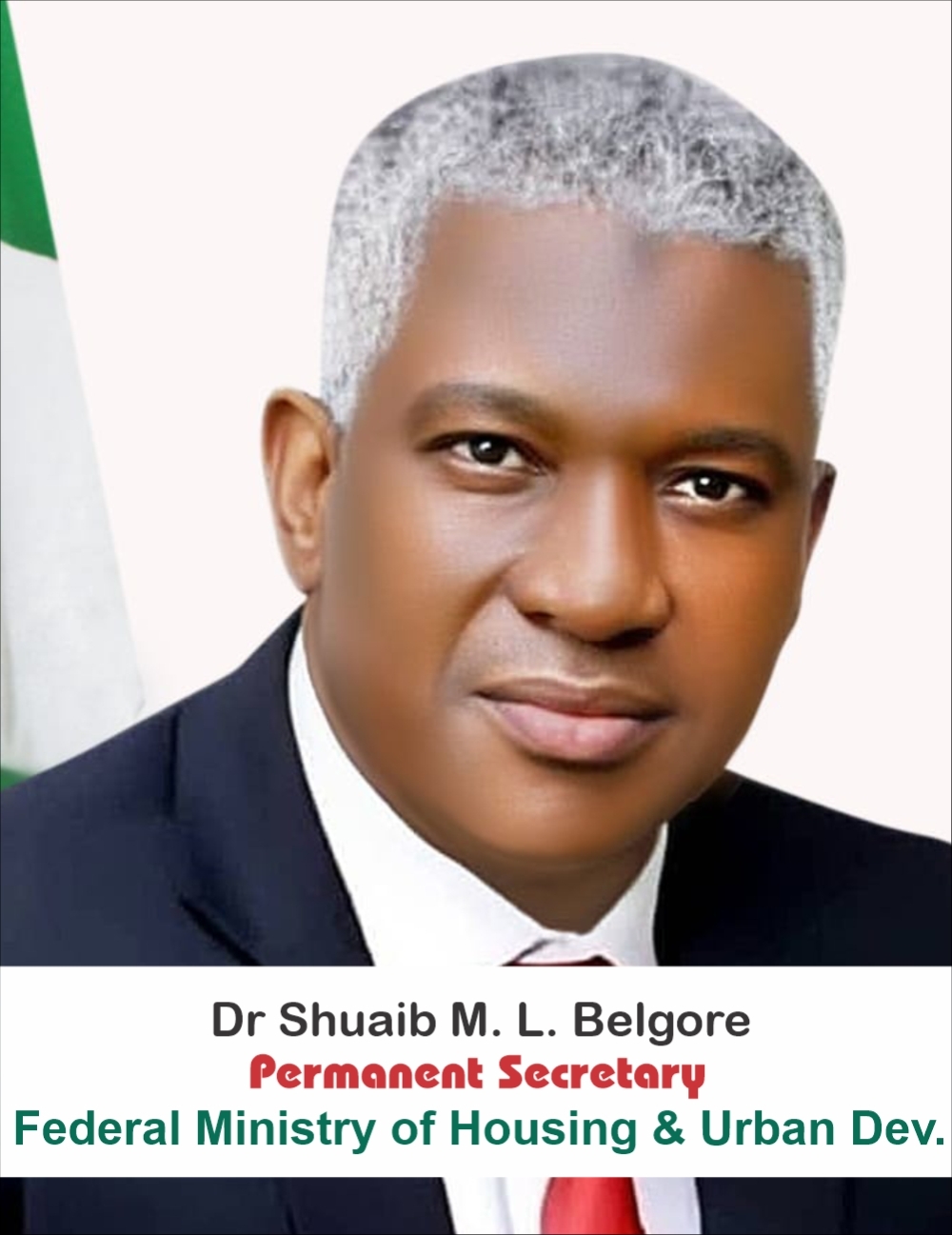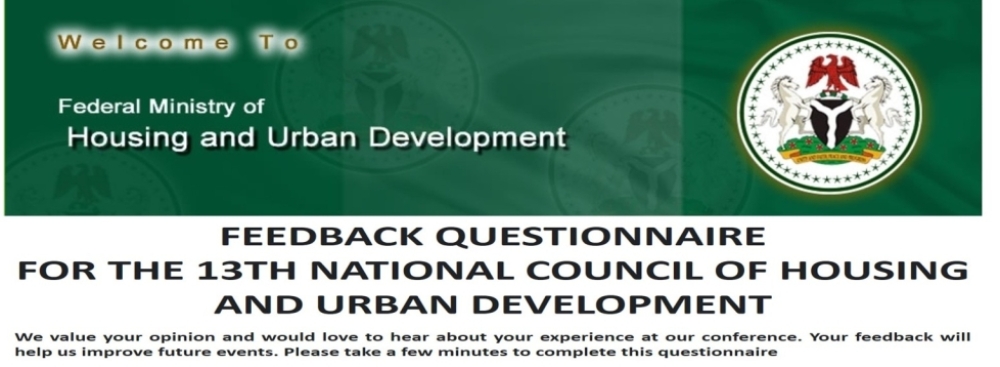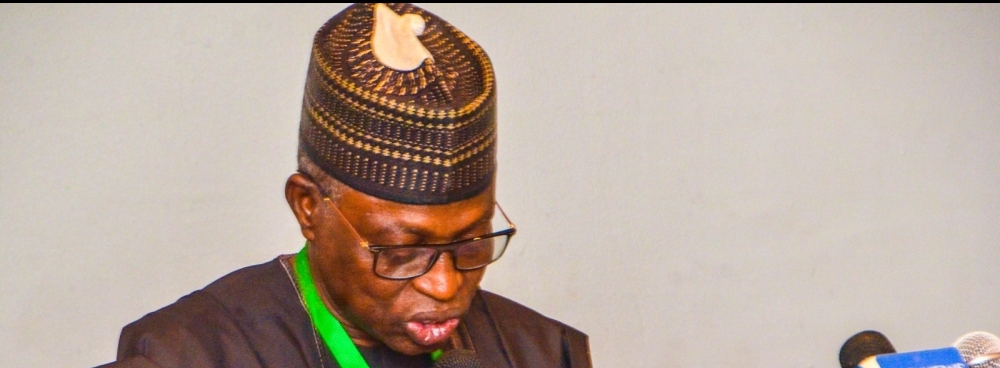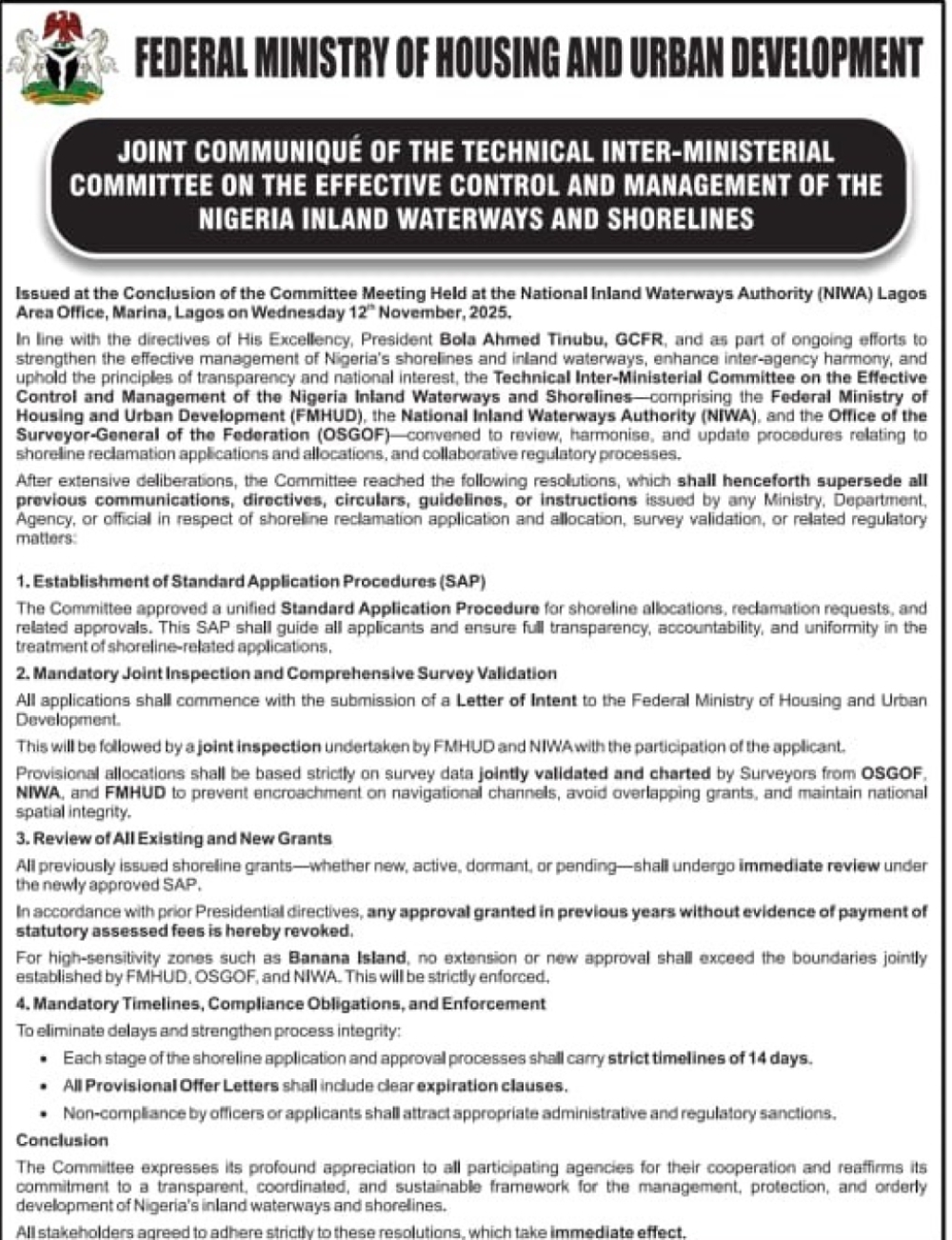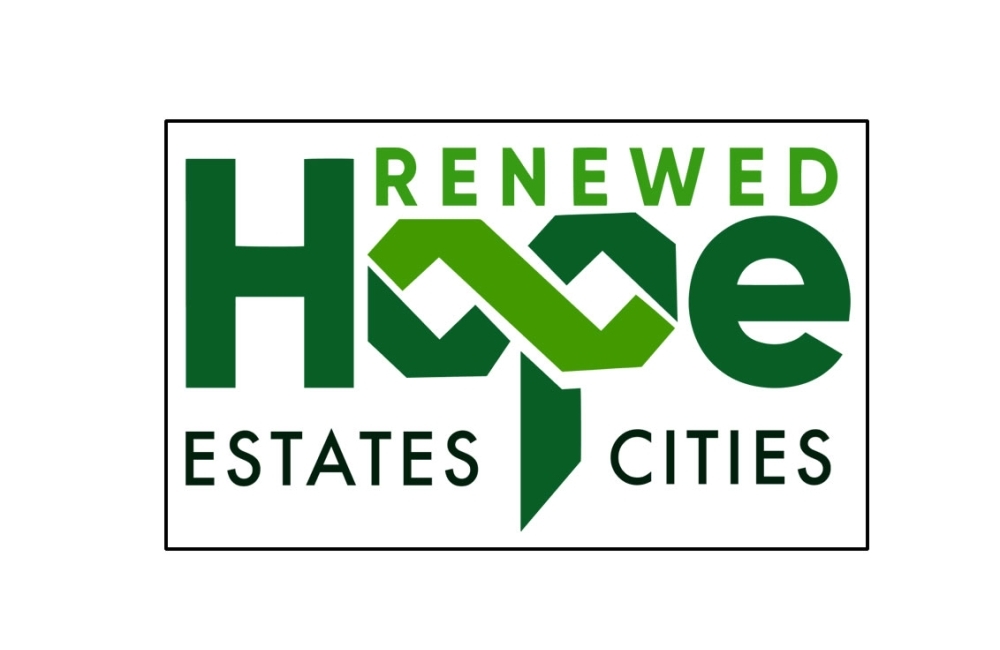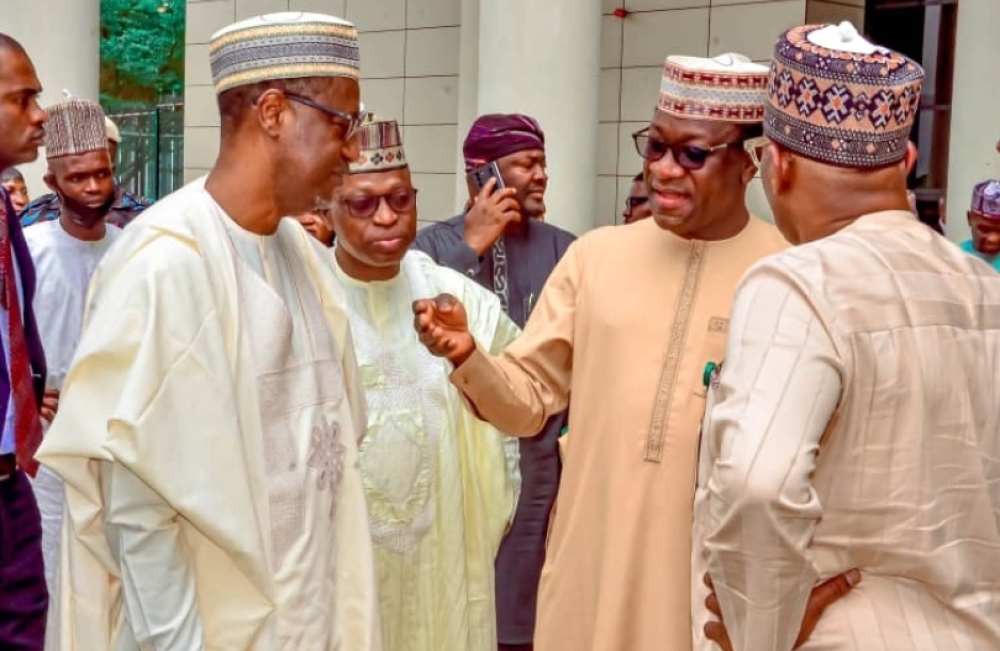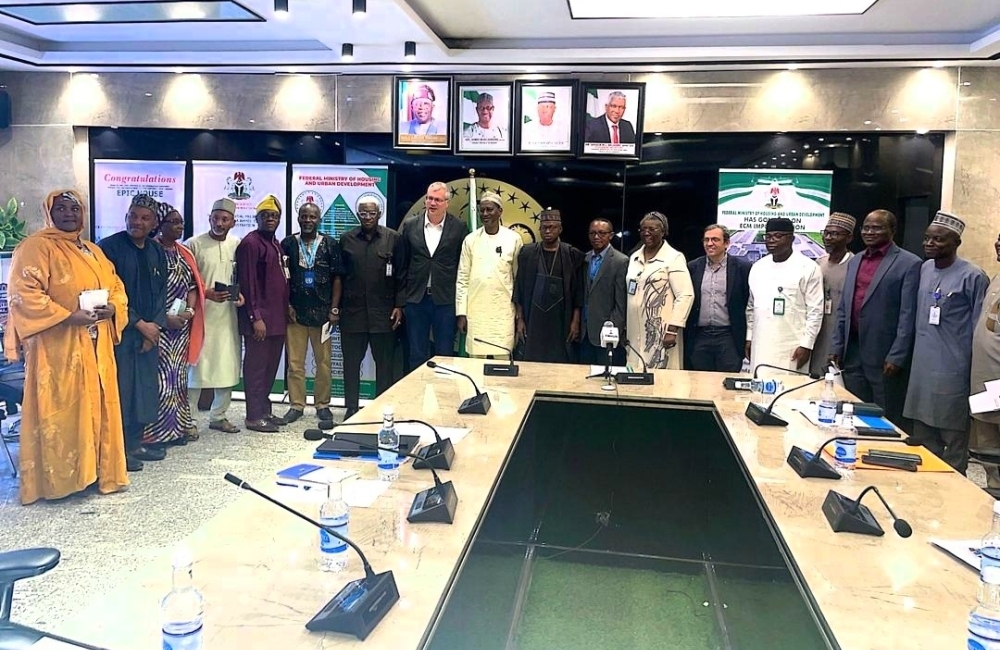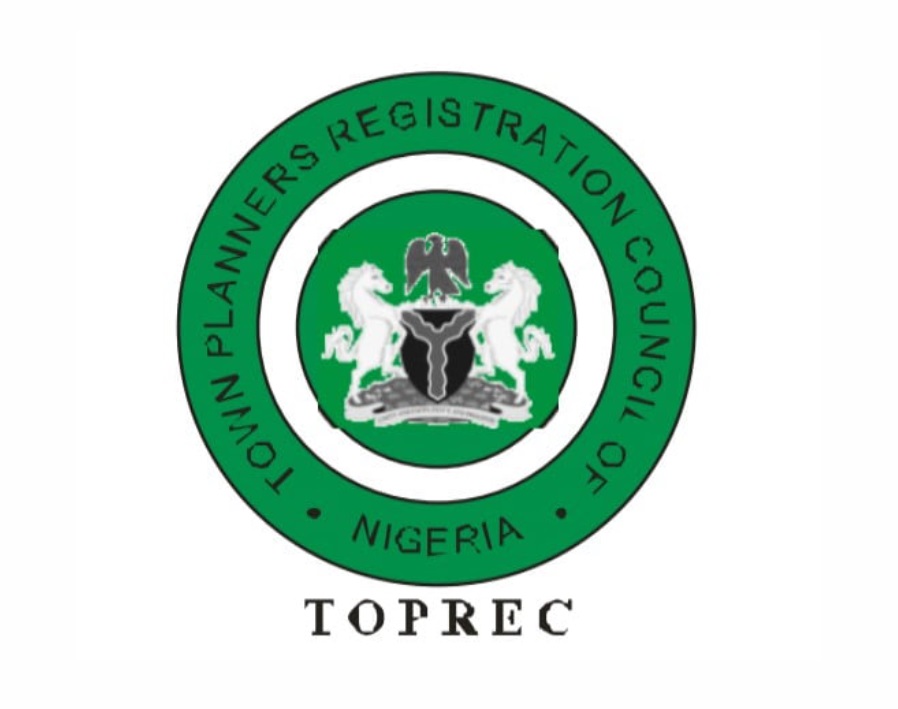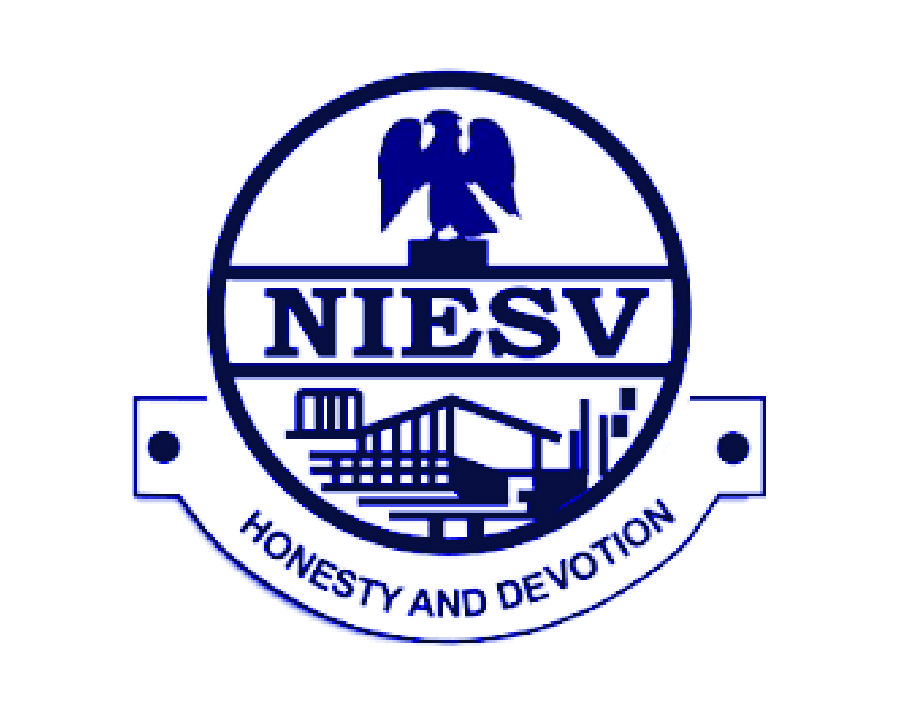OPENING STATEMENT BY THE MINISTER OF STATE, FEDERAL MINISTRY OF HOUSING AND URBAN DEVELOPMENT, RT. HON YUSUF ABDULLAHI ATA AT THE STAKEHOLDER'S ENGAGEMENT ON THE DEVELOPMENT OF FISCAL INCENTIVES FOR MANUFACTURERS OF LOCAL BUILDING MATERIALS COMPONENTS IN NIGERIA, HELD AT THE RADISSON BLU HOTEL, G.R.A IKEJA, LAGOS ON 20TH FEBRUARY, 2025
PROTOCOL
Honourable Minister,
Chairman Senate Committee on Lands, Housing & Urban Development,
Chairmen of the relevant House Committees,
Permanent Secretary,
Directors and Staff of the Ministry,
Speakers at this event,
Chairmen of the Four (4) Reform Task Teams,
Stakeholders from relevant MDAs and the Private Sector,
Officials of the Lagos State Government,
Members of the Press,
Ladies & Gentlemen.
It is my honour and great previlege to give the opening statement at this very important session on the development of fiscal incentives for manufacturers of local building materials components in Nigeria. We are gathered here today to discuss how we can jointly work to enhance the production of local building materials, reduce construction costs, and, in the process, stimulate economic growth in our nation.
2. As part of the Federal Ministry of Housing and Urban Development’s (FMHUD) commitment to Nigeria’s development agenda under the Presidential Priorities and Ministerial Deliverables for 2023-2027, we are focused on addressing key challenges in the housing and construction sectors. Our objectives include rapidly reforming our housing institutions, establishing a National Social Housing Fund, revising the Land Use Act, and ensuring the construction of at least 20,000 housing units annually.
3. However, one of the key focus areas of this administration is establishing a private sector-led local building materials manufacturing cluster in each of Nigeria’s six geopolitical zones. This initiative will focus on the development of fiscal incentives to support private investors, particularly in the local production of building components.
4. The construction and real estate sectors are vital drivers of Nigeria’s economic growth. They employ millions of people and contribute significantly to our GDP. But we face some daunting challenges in these sectors. The high cost and inconsistent supply of building materials remain critical obstacles. Import dependence on materials like cement, iron rods, tiles, glass, and roofing sheets inflates construction costs. Moreover, the production capabilities of our local manufacturers remain underdeveloped, adding to the cost burden.
5. To meet the needs of our growing population and rapidly urbanizing communities, we must focus on increasing local production. We need to reduce reliance on imports, make building materials more affordable, and create jobs for our people.
6. In light of these challenges, we are exploring the establishment of manufacturing hubs in each of Nigeria’s six geopolitical zones. These hubs will focus on producing key building materials, such as cement, steel, roofing materials, tiles, paints, and glass etc. By boosting local production, we aim to reduce construction costs, stimulate economic development, promote regional growth, and generate employment opportunities.
7. The hubs will be strategically placed in key locations like Ogun, Delta, Abia, Kano, Gombe, and Kwara states, with each hub serving its respective region. These hubs will not only enhance production capabilities but will also offer significant opportunities for private sector investment, vocational training, and innovation.
8 The key objective is to establish a sustainable, decentralized network of building materials manufacturing hubs across Nigeria's six geopolitical zones aimed at improving the nation’s manufacturing competitiveness. The hubs will bring together the states in the region, industry partners, local businesses, local governments, economic development agencies, and educational institutions, to collaborate and grow the required regional manufacturing. The development of a strong local manufacturing ecosystem will ensure the hubs are driven from within the geo-political zones, based on local knowledge and insight. The ecosystem will develop over time and position the hubs to be self-sustaining, going forward.
9. The hubs will synergize with our vocational and tertiary institutions to develop a workforce with strong skills in science, technology, and engineering and provide a significant opportunity by bringing together industry and researchers in one place to potentially work on developmental projects together. The advantages associated with the hub include the offering of significant and transformational benefits for regional manufacturing businesses including:
- a benchmarking service;
- saving time for business and helping manufacturers focus more on developing their products;
- assistance to help bring products to market;
- showcasing regional manufacturers and maximization of regional cost advantages;
- Workforce Development and Training for businesses and employees;
- business mentoring and coaching;
- developing important career pathways to and from schools and universities;
- growing SMEs to drive growth in regional areas and job creation;
- bringing together business and research to improve regional manufacturing capabilities
10. The co-location strategy is to amongst others, ensure that the value added through innovations in these hubs, spread rapidly across the six geo-political zones. The hubs will be under the purview of the Federal Ministry of Housing and Urban Development and a central oversight committee may be established and chaired by the Honorable Minister or his representative. The Committee will be responsible for the strategic direction of the hubs, amongst others. Membership may include representatives of state governments, universities, vocational institutions, unions, and industry players.
11. The Role of Fiscal Incentives in Boosting Local Manufacturing: As we discuss the role of fiscal incentives in driving the success of these manufacturing hubs, we recognize that it is critical for the government to provide robust and targeted support. The following incentives are currently under consideration:
- Tax Incentives: As a Ministry, we intend to push for tax holidays or exemptions for new and expanding building materials factories and we believe that, reduced corporate tax rates and investment tax credits will make it easier for manufacturers to invest in technology, machinery, and capacity building.
- Subsidies and Grants: We are considering subsidies for the importation or local procurement of raw materials, as well as government grants for research and development initiatives aimed at improving efficiency and reducing production costs.
- Access to Cheap Financing: In synergy with other government agencies, we will work with local banks and development finance institutions to provide low-interest loans, credit guarantee schemes, and financing to encourage manufacturers to expand their operations.
- Infrastructure Development: The government will focus on improving energy supply, transportation, and logistics infrastructure. This includes ensuring reliable power supply and upgrading key transport networks to reduce the cost of raw material supply and distribution.
- Local Content Policies: We are exploring policies to provide preference for locally produced materials in government construction projects, encouraging manufacturers to increase production to meet the growing demand.
- Duty Waivers on Equipment Imports: We will also synergize with relevant MDAs to consider offering duty-free or reduced duties on essential manufacturing equipment and raw materials to help reduce initial capital expenditure for manufacturers.
- Building Material Manufacture Hubs (Industrial Parks and Special Economic Zones (SEZs)): The Building Materials Manufacturing Hubs under reference are being contemplated as industrial parks, specifically designed for building materials manufacturers, where they can benefit from tax incentives, shared infrastructure, and improved access to raw materials.
- Capacity Building and Skills Development: In addition to fiscal incentives, we understand the importance of skills development. Training programs and vocational schemes will be rolled out to ensure that we have a well-equipped and highly skilled workforce to support the growth of the manufacturing hubs. This collaboration with educational and technical institutions will ensure that local manufacturers benefit from continuous skills development, which will in turn help improve product quality and operational efficiency.
- Export Incentives: To further encourage growth, we will also explore export incentives, such as export subsidies, tax exemptions on profits from exported goods, and assistance with navigating international markets. This will allow our local manufacturers to scale up production and tap into regional and global markets, boosting the competitiveness of Nigerian-made building materials.
- Collaboration and Support for Research and Innovation: As a Ministry, we recognize the role of research, development, and innovation in driving long-term success. Through government support for R&D, we aim to encourage the development of new technologies that will improve the sustainability, cost-efficiency, and competitiveness of local manufacturers.
12. Nigeria is already witnessing promising success stories in this sector. Companies like X Engineering Ltd and Green Build Nigeria have championed innovative solutions, producing high-quality cement alternatives and eco-friendly bricks using locally sourced materials. Through strategic partnerships and government support, these enterprises have demonstrated the viability and competitiveness of our local manufacturing industry. Furthermore, the adoption of indigenous materials such as stabilized earth blocks, bamboo-reinforced concrete, and locally sourced roofing materials has led to cost reductions of up to 30% in some housing projects.
13. In the Northern Region, communities have embraced interlocking compressed earth bricks, significantly reducing dependency on imported alternatives. Similarly, in the Niger Delta, the use of recycled plastic as a construction material is not only tackling waste management issues but also providing affordable housing solutions.
14. Finally, I will like to thank and specially recognize Arc. Nuhu S. Wya and his Task Team on the establishment of the Building Materials Manufacturing Hubs for their detailed work and guidance. The establishment of local building materials manufacturing hubs and the development of fiscal incentives are critical to addressing the challenges in the construction sector. These efforts of the FGN, will not only lower the cost of building materials but will also create jobs, stimulate regional development, and reduce our reliance on imports.
15. We look forward to engaging with you, our esteemed stakeholders, to explore the best ways to implement these initiatives. Together, we can ensure that Nigeria’s construction industry becomes more self-sufficient, efficient, and competitive, contributing to the overall growth and prosperity of our nation.
16. Thank you for your time and participation. We look forward to a fruitful and productive session.
